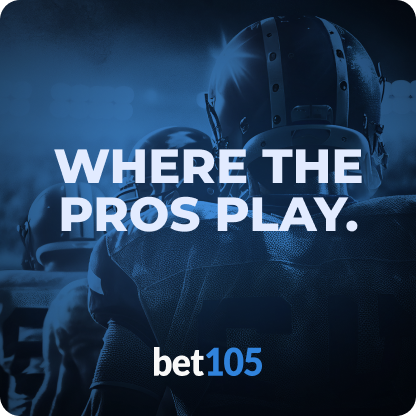Betting Exchanges vs. Traditional Sportsbooks: A Comprehensive Comparison
Introduction Sports betting has evolved significantly over the years, with the rise of betting exchanges challenging the dominance of

Introduction
Sports betting has evolved significantly over the years, with the rise of betting exchanges challenging the dominance of traditional sportsbooks. Both options offer unique advantages and disadvantages, making it essential for bettors to understand their differences to maximize profits.
This guide provides a detailed comparison of betting exchanges and traditional sportsbooks, highlighting key differences, benefits, drawbacks, and strategies for success.
What Are Traditional Sportsbooks?
Traditional sportsbooks are the most common platform for sports betting. These are bookmakers that set odds, accept bets, and take a commission (or vig) on wagers. The sportsbook acts as the counterparty to every bet, meaning it profits when bettors lose.
Key Features of Traditional Sportsbooks
- Fixed Odds: Bettors receive pre-set odds that the sportsbook determines.
- Margins (Vig): The sportsbook includes a margin in the odds to ensure profitability.
- Bonuses and Promotions: Many sportsbooks offer sign-up bonuses, free bets, and loyalty rewards.
- Limited Bet Sizes: Some sportsbooks impose limits, especially on sharp bettors.
- More Market Availability: Traditional sportsbooks cover a wide range of betting markets, including props, parlays, and futures.
What Are Betting Exchanges?
A betting exchange allows bettors to wager against each other instead of against a bookmaker. The exchange acts as an intermediary, facilitating transactions while charging a small commission on winning bets. Bettors can back (bet for an outcome) or lay (bet against an outcome).
Key Features of Betting Exchanges
- Peer-to-Peer Betting: Users set their own odds and place bets against other players.
- Lower Commission Instead of Vig: Exchanges charge a commission (typically 2-5%) on winnings instead of embedding a margin in the odds.
- Higher Odds and Better Value: Since there’s no sportsbook margin, odds tend to be more favorable for bettors.
- Ability to Lay Bets: Bettors can act as a bookmaker, offering odds and accepting bets from others.
- Liquidity Matters: Market liquidity impacts how easily bettors can match their bets.
Key Differences Between Betting Exchanges and Traditional Sportsbooks
Odds and Pricing
- Traditional Sportsbooks: Odds include a margin to ensure the bookmaker’s profit.
- Betting Exchanges: Odds are generally more competitive because they are determined by market demand.
Betting Limits
- Traditional Sportsbooks: Often impose limits on sharp bettors or large wagers.
- Betting Exchanges: Allow larger bets as long as there’s market liquidity.
Betting Against Outcomes
- Traditional Sportsbooks: Bettors can only wager on an outcome occurring.
- Betting Exchanges: Offer the ability to lay bets, meaning bettors can profit if an event does not happen.
Fees and Costs
- Traditional Sportsbooks: Charge an embedded vig (margin) in the odds.
- Betting Exchanges: Charge a commission on winning bets, often lower than a sportsbook’s margin.
Availability of Markets
- Traditional Sportsbooks: Offer extensive betting options, including props, parlays, and in-play betting.
- Betting Exchanges: May have limited markets depending on liquidity and popularity.
Sharps and Professional Bettors
- Traditional Sportsbooks: May limit or ban professional bettors who consistently win.
- Betting Exchanges: Welcome sharp bettors since the exchange profits from commissions rather than losses.
Pros and Cons of Traditional Sportsbooks
Pros
- Easy to use, especially for beginners.
- Wide range of betting markets and promotions.
- Fixed odds provide certainty when placing a bet.
- Often include in-play betting, cash-out options, and mobile betting apps.
Cons
- Odds include a margin, leading to lower payouts.
- Sharp bettors may face restrictions or account limits.
- No ability to lay bets (bet against outcomes).
Pros and Cons of Betting Exchanges
Pros
- Better odds due to the absence of a bookmaker’s margin.
- Ability to lay bets and create custom odds.
- Higher betting limits if there is sufficient liquidity.
- Favorable for professional and high-stakes bettors.
Cons
- Fewer markets compared to traditional sportsbooks.
- Requires more knowledge to navigate and use effectively.
- Liquidity issues can make it difficult to place or match bets.
Which One Should You Choose?
The best choice depends on your betting style and goals:
- Casual Bettors: Traditional sportsbooks offer ease of use, promotions, and a wide variety of markets.
- Value Seekers and Sharps: Betting exchanges provide better odds, lower commissions, and the ability to lay bets.
- High-Stakes Players: Betting exchanges allow larger wagers without restrictions.
Maximize Your Betting Strategy with bet105
For bettors seeking the best of both worlds, bet105 provides competitive odds, high betting limits, and a player-friendly experience. Whether you prefer traditional sportsbooks or betting exchanges, bet105 ensures a seamless and rewarding betting experience.
Start betting today at bet105.












